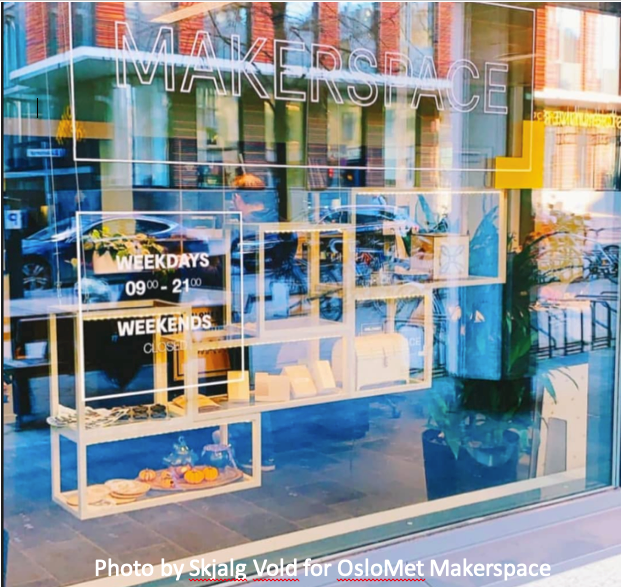Designing an Interdisciplinary Course in a Makerspace
Towards collaborative creativity for a sustainable society
DOI:
https://doi.org/10.7577/formakademisk.4015Abstract
The study explored how to develop an elective, interdisciplinary course in a makerspace. The study highlighted the potentials and pitfalls in the transitional space between institutionalised and research-based higher education in relation to the free maker movement. The identified success criteria to set up an elective, interdisciplinary course in a makerspace were connected to the following central concepts: problem, practice, product, bodies of knowledge, critique, scientific discourse, methods, earlier knowledge, personal experience and organisational processes. The study showed how the makerspace elective course can contribute positively to student life by strengthening inclusion, a feeling of belonging, study enjoyment and interdisciplinarity skills in a professional setting. These qualities form a value-based conceptual framework for student active learning that can enable creativity and collaboration, which are essential twenty-first-century skills for a more sustainable society.

Downloads
Published
How to Cite
Issue
Section
License
Copyright (c) 2020 Arild Berg, Tengel Aas Sandtrø, Evin Güler, Alfredo Carella, Mali Norvalls, Jenny Helene Haugen Thor, Marius Lysebo

This work is licensed under a Creative Commons Attribution-NoDerivatives 4.0 International License.
Authors who publish with this journal agree to the following terms:
- Authors retain copyright and grant the journal right of first publication with the work simultaneously licensed under a Creative Commons Attribution 4.0 License that allows others to share the work with an acknowledgement of the work's authorship and initial publication in this journal.
- Authors are able to enter into separate, additional contractual arrangements for the non-exclusive distribution of the journal's published version of the work (e.g., post it to an institutional repository or publish it in a book), with an acknowledgement of its initial publication in this journal.
- Authors are permitted and encouraged to post their work online (e.g., in institutional repositories or on their website) prior to and during the submission process, as it can lead to productive exchanges, as well as earlier and greater citation of published work (See The Effect of Open Access).
- The author(s) must manage their economic reproduction rights to any third party.
- The journal makes no financial or other compensation for submissions, unless a separate agreement regarding this matter has been made with the author(s).
- The journal is obliged to archive the manuscript (including metadata) in its originally published digital form for at least a suitable amount of time in which the manuscript can be accessed via a long-term archive for digital material, such as in the Norwegian universities’ institutional archives within the framework of the NORA partnership.
The material will be published OpenAccess with a Creative Commons 4.0 License which allows anyone to read, share and adapt the content, even commercially under the licence terms:
This work needs to be appropriately attributed/credited, a link must be provided to the CC-BY 4.0 licence, and changes made need to be indicated in a reasonable manner, but not in any way that suggests that the licensor endorses you or your use.



